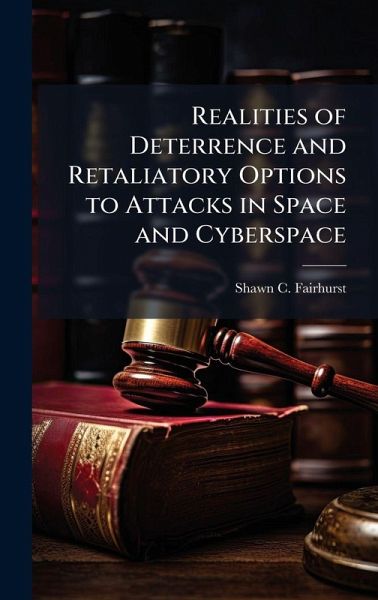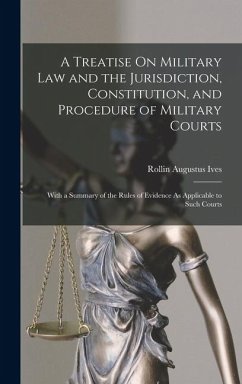
Realities of Deterrence and Retaliatory Options to Attacks in Space and Cyberspace
Versandkostenfrei!
Versandfertig in über 4 Wochen
25,99 €
inkl. MwSt.
Weitere Ausgaben:

PAYBACK Punkte
13 °P sammeln!
Since the last years of the 20th Century, threats in space and cyberspace have become prominent, to the point where an attack can threaten state sovereignty and have regional, if not global consequences. These threats are emerging at the same time that the United States? reliance on its own space and cyber capabilities increases to maintain international diplomatic leadership and conventional military superiority. US national policy speaks to deterring and defending against such attacks, but a lack of international precedent and the legal limitations of war, specifically attribution, proportio...
Since the last years of the 20th Century, threats in space and cyberspace have become prominent, to the point where an attack can threaten state sovereignty and have regional, if not global consequences. These threats are emerging at the same time that the United States? reliance on its own space and cyber capabilities increases to maintain international diplomatic leadership and conventional military superiority. US national policy speaks to deterring and defending against such attacks, but a lack of international precedent and the legal limitations of war, specifically attribution, proportionality and discrimination, limit United States response options to an unprovoked attack in these domains. In order to establish an effective deterrence, the United States must move away from the Cold War model and fashion a global environment that fosters effective deterrent strategies. Building this new order requires the United States lead the international debate to define attacks in space and cyberspace and appropriate ?self-defense? responses under Article 51 of the United Nations Charter. The United States must demonstrate the political will to take action unilaterally, if necessary, to set precedent, and erase the failures of past transgressions, including NATO's failure to respond to the Estonia cyber attacks in 2007. As deterrence is predicated on the ability to attribute in order to hold an adversary at risk, the United States must improve its ability to detect and attribute attacks in space and cyberspace. Finally, the United States must reduce its space and cyberspace vulnerabilities and prove to any potential adversary that its military can successfully fight through any degradation and win. This work has been selected by scholars as being culturally important, and is part of the knowledge base of civilization as we know it. This work was reproduced from the original artifact, and remains as true to the original work as possible. Therefore, you will see the original copyright references, library stamps (as most of these works have been housed in our most important libraries around the world), and other notations in the work. This work is in the public domain in the United States of America, and possibly other nations. Within the United States, you may freely copy and distribute this work, as no entity (individual or corporate) has a copyright on the body of the work. As a reproduction of a historical artifact, this work may contain missing or blurred pages, poor pictures, errant marks, etc. Scholars believe, and we concur, that this work is important enough to be preserved, reproduced, and made generally available to the public. We appreciate your support of the preservation process, and thank you for being an important part of keeping this knowledge alive and relevant.












